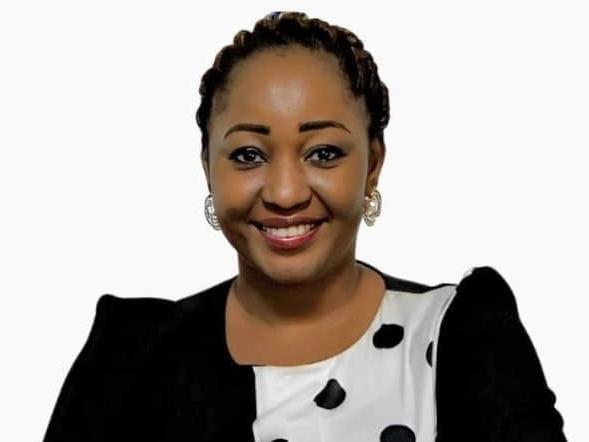Although Suzan Ochannya Agada had witnessed many harrowing incidents during her time in Borno, the memory of a five-year-old girl who was raped to death refuses to fade. “Sometimes I don’t like talking about those experiences because a lot of them were quite graphic,” she says.
The memory clung to her mind during her daily counselling sessions with displaced women and girls, her night patrols, and her endless meetings with commanders and community elders.
According to UN Women, more than 1.8 million women and girls in Northeast Nigeria have been displaced by the Boko Haram violence.
Whereas over 1,000 children have been abducted by the Boko Haram insurgents since 2013, Human Rights Watch estimates that there is an increase in abducted women and children, which remains unaccounted for.
Although Suzan’s story unfolds against this backdrop of Boko Haram insurgency and displacement, her life began far from the frontlines.
Born in Makurdi, the capital of Benue State, the youngest of 13 children, Susan attended Federal Government Girls’ College, Langtang, and later studied Economics at the University of Maiduguri.
In 2007, while serving as a corps member in Cross River, Suzan encountered the raw struggles of rural women and children. The experience stirred something deep in her, prompting her to take opportunities in humanitarian service.
After her service year, she joined a European Union (EU) project known as the EU Prime Partnership to Reinforce Immunisation Efficiency, which was a collaboration between the EU and Nigeria. Managed by EPOS Health Consultants from Germany, it targeted primary health care, particularly immunisation, across the FCT and 23 Nigerian states.
She worked as a Programme Officer in the Training Department in what became the beginning of her career in the development sector.
After the project ended in 2009, Suzan took a break from her career to start a family. She transitioned into the civil service, joining the National Agency for Food and Drug Administration and Control (NAFDAC) in 2010, where she worked for seven years.
Initially, she served as an economist in the Monitoring and Evaluation Unit of the Planning, Research and Statistics Department, supporting data collection for the agency nationwide.
Two days after her twin boys turned nine months old, Susan enrolled for further studies in what “was one of the most difficult decisions ever,” she says.
In 2013, she obtained a Master’s degree in Development Management with a focus on gender from the Ghana institute of Management and Public Administration.
Her degree coincidentally aligned with a new directive by the federal government mandating all ministries and agencies to establish gender desks. Thus, in February 2014, she became NAFDAC’s first Gender Desk Officer.
In this pioneering role, she spearheaded the development of the agency’s first and only gender policy, which is still in use today. She also managed two major gender-related projects, including one funded by the UK’s Foreign, Commonwealth and Development Office (FCDO).
But the trade-offs never stopped. In March 2017, after seven years of service, she left NAFDAC to follow her passion: the development and gender advocacy space. She later served as Gender lead across several international organisations like SOS Children’s Villages Nigeria, Save the Children International, Oxfam and Palladium.
In Nigeria’s south, hundreds of refugees were streaming into the Nigerian state of Cross River as a retreat from the violent conflicts in Cameroon. She also helped launch a humanitarian response in the Cross River as the displacement worsened.
She teamed with community leaders to foster safe spaces for women, coordinated with other NGOs to fund local civil society, and supervised teams who delivered life-saving interventions on the ground.
Braving Boko Haram’s strongholds
At the height of the Boko Haram insurgency, Suzan worked in Borno, Yobe and Adamawa, offering thousands of children displaced by the insurgency. Family relations greatly opposed her desire to support the Nigerian humanitarian response amidst the dangers.
Although anxious, her husband supported her mission, calling repeatedly to confirm that she was safe.
“He has seen that I’m very passionate about what I do,” she says fondly of her husband. “It’s also only a supportive husband that would, under pressure, agree for a mother to leave behind 3 kids.”
While her sisters looked after her kids, Suzan counselled survivors of sexual violence. She coordinated reintegration programmes for rescued women, mediated with local elders to dial back stigma and groomed community volunteers in psychosocial first aid.
She was often the one who sat with women who had lost everything, piecing together hope from fragments of despair. It was here she met Hadiza, a 14-year-old rescued from insurgents.
One morning, Suzan learnt that Hadiza had fled back to the insurgents, despite receiving psychosocial support. “That really broke me,” she recalls. “I was very hopeful that Hadiza will bounce back.”
Psychologists described such circumstances as trauma bonding. But the girls had become pariahs in their environment. Society labelled them “wives of insurgents,” families rejected them, leaving them desperate. “Some would say, ‘Is it not better I go back where at least I can see 3 square meals?’” Suzan explains.
Amidst the violence, Suzan looks back at her stay in Borno with a sense of pride. She witnessed firsthand the life-saving impact of interventions on women displaced by Boko Haram conflicts and affected by gender-based violence.
Those choices deprived her of sleep and stability. The grief of seeing children abused carried over into her sleep. She wrestled with survivor guilt and the ethical weight of decisions made in the field until she returned home in 2019 still continuing her mission.
In 2023, Suzan joined UN Women as the National Programme Officer, Peace Building & Prevention (Women, Peace & Security). She currently holds the position of the National Programme Officer, Women Political Empowerment.
Along the way she has mentored staff, led major projects (including FCDO-funded gender projects), and helped scale gender programming across Nigeria. Today, Suzan is rounding off her doctoral research in Development Management at the University of Abuja.
Suzan’s activism is focused on systems. Rescues remain fragile when the state and communities do not follow through.
She points to three recurring failures: stigma that punishes survivors of Boko Haram violence, the near-absence of functioning social protection and livelihoods for returnees, and weak institutional capacity at state and local levels to implement protective laws and policies.
“We have policies, but policies are almost as good as not helpful,” she says. “Laws are heavier… laws come with penalties and are ingrained in our constitution. Without laws we keep spinning our wheels.”
Similarly, she highlights the constitutional review and the push for reserved seats for women as a policy intervention that could shift political inclusion. This is particularly urgent in Nigeria, where national surveys show that over 33% of Nigerian women aged 15 have experienced physical violence.
6 in 10 women in Northeastern Nigeria have experienced sexual and gender-based violence.
What kept her returning to harm’s way? Part conviction and part stubbornness. “If nobody is going to do the job, who’s gonna do it? Who’s gonna support those women?”
Her personal history as the last child of 13 children, the chores and expectations of being the youngest in a large family, the experience of occasionally being told a woman’s life ends with marriage fed a deep desire to prove a counter-narrative: that women can lead, protect, and provide.
She wanted to show that motherhood and ambition are not mutually exclusive. She wanted to take hope into forgotten communities where “the needs are at the grassroots,” she says.
By Suzan’s account, the programmes she worked on reached thousands across Borno, Yobe, Adamawa, and into Cross River during waves of displacement.
Meanhwile the tally of lives changed coexists with the knowledge of those the system lost: the dead five-year-old, the girls who ran back and the women who remain stigmatised.
She believes Nigeria’s greatest barriers to equality are religion and culture, often weaponised to keep women silent. Laws remain inadequate too. “I can’t pinpoint any part of the constitution that expressly supports women and girls,” she notes.
Her approach has been to work with the gatekeepers of culture, the religious and traditional leaders, holding long conversations and pushing slowly for behaviour change. But technical interventions always collide with structural failure.
In her words: “The Ministry of Women Affairs has the Department, but they’re almost inactive. Budgets are made, but they don’t get to the beneficiaries.”
She pointed out that there are no safety nets, no frameworks and no infrastructure to support citizens that experience all of this trauma.
She wants laws that carry weight, budgets that reach beneficiaries, and operational institutions that protect survivors.
“I put my life on the line to provide life-saving support interventions to the most vulnerable women and girls in Nigeria,” she says. “I’m happy that I made that sacrifice.”
Summary not available at this time.






